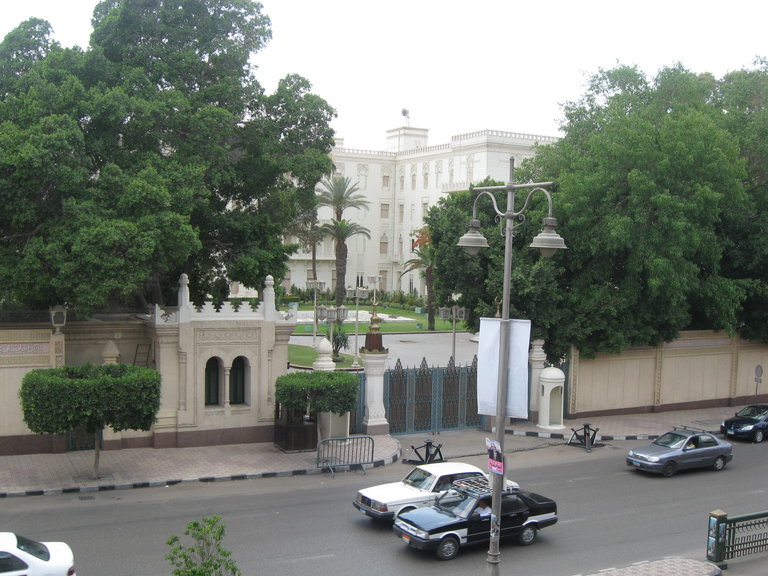Opinions differ regarding the prospects of Egypt winning such an award
CAIRO: The New Frontiers Award will become a permanent feature of the annual Arabian Travel Market in Dubai. The award will be given to the destination that has made an outstanding contribution to tourism development in the face of overwhelming adversity. It’s not clear whether Egypt, which has recently been hit by several terrorist attacks, could be a strong candidate for the award.
Reed Travel Exhibitions (RTE), organizer of the region’s premier travel and tourism exhibitions, Arabian Travel Market and Mediterranean Travel Fair (MTF), announced the award during the proceedings of the MTF that was held in Cairo last week.
“We want to make a practical contribution to the further development of the tourism industry in those destinations that have overcome adversity to contribute to tourism, says Tom Nutley, chairman of Reed Travel Exhibitions, “and at the same time clearly demonstrate our commitment to our own corporate social responsibility.
The award will provide the winner with $5,000 worth of free exhibition space at two of the region’s key industry events. “[This] will give the selected destination a unique opportunity to make direct contact with major international tour operators and potentially the benefits could be unlimited, explains Nutley.
According to an RTE statement, an independent panel of international judges is now being recruited. The judges represent international charities, global travel and tourism associations and delegates from leading travel and business publications as well as broadcast media professionals.
After a worldwide search, the panel will initially select 20 worthy destinations and then “short-list the three destinations whom, in their opinion, have above all others, made an indelible impact on tourism development over the previous 12 months, against all the odds, reads the company statement.
In spite of the international format for the award, it stems from a personal experience. The idea came when Nutley made a couple of visits to Bali in Indonesia following the bombings in 2002.
With about a year separating the two visits, Nutley was able to observe the effect of the bombings on the tourism industry, which had contributed to 65 percent of the country’s economy. He says a year after the bombings many of the locally and privately owned hotels, shops and restaurants, had closed down. Hotel occupancy was at 10 percent, he adds.
Saddened by this noticeable effect, Nutley says there wasn’t much he could do to help. He decided, however, to offer the town free exhibition space at two international travel fairs so officials would have the opportunity to tell the world about the efforts made to restore tourism activities and “reassure the industry.
Although there is no clear correlation between these two exhibitions and the consequent upswing in tourism rates in Bali, the idea definitely helped the town, explains Nutley. It isn’t just the free exhibition space, he continues, but the coverage the town got at the time.
Thus, the idea for the New Frontiers Award came to life. In 2006, Phuket, the Thai tourist destination received the award. “Phuket was recognized for prevailing through some of the harshest conditions and most difficult circumstances during and post-tsunami, says Nutley. “I am delighted to support their marketing efforts here at MTF and I wish them every success next year at the Arabian Travel Market in Dubai.
In Phuket, the recovery wasn’t just the result of the efforts of international aid agencies but the way people galvanized efforts in the process.
According to Nutley, the selection process will see how the country, in conjunction with the private sector, has managed to cope with the disaster and recover. It covers “how positive and effective the reaction was.
The question is, does Egypt have a chance of winning the award or even being short-listed for it?
The steps are fairly easy – in theory. According to Nutley, an applicant has to present a document explaining the type of the disaster it has gone through and its effects. Then the document would explain the country’s reaction to this disaster, and the actions it has taken. Then it would explain the effect of these actions in detail. For example, it would state that in six months, efforts led to a particular improvement and in a year there was another improvement.
It is not just about having a positive reaction, but telling the world about these improvements, says Nutley.
Yet, with a country where the basic infrastructure for the establishment of a tourism industry is still incomparable to other places in the world, according to Nutley, the challenge to prove recovery from the three bombings that rocked Sinai during the past two years might be more difficult.
But according to Hisham Zaazou, the director general of the Egyptian tourism federation, the tourism infrastructure in the country is quite good, except for traffic. The telephone communication system is one of the best in the region, he adds, and there is continuous improvement. He says the roads are improving and the Ministry of Tourism has taken several measures to ensure the safety of tourist groups.
As for winning the award, Egypt’s prospects are “extremely high, notes Zaazou. He explains that Egypt has a history of quickly bouncing back from disasters. And currently, he continues, there is an ongoing campaign to advertise the country’s recovery efforts.

